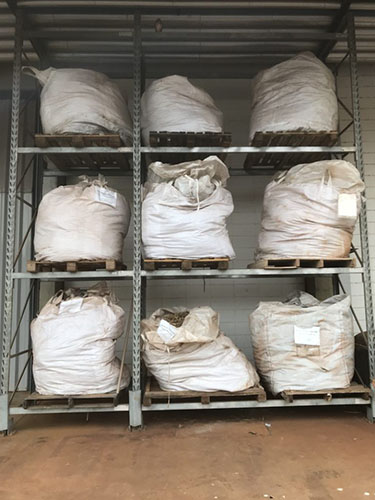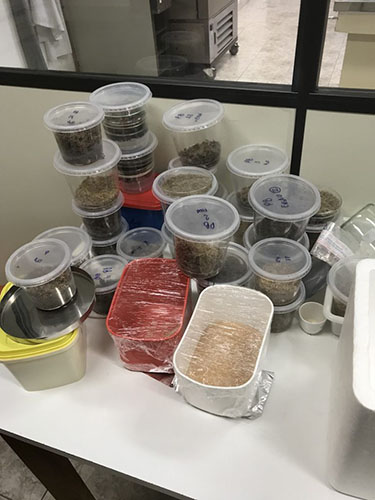When now Brazilian president-elect Jair Bolsonaro promised during his campaign to withdraw from the Paris climate accord, putting development ahead of environmental protection, many in the agribusiness sector were decidedly optimistic. One agribusiness group, however, was not: sugarcane ethanol producers. Bolsonaro has since seemingly backtracked on his withdrawal promise, and ethanol producers are now the ones who are optimistic. While sugarcane cultivation is implicated in broader agricultural practices that have historically promoted deforestation in Brazil, sugarcane industrialists ultimately care about the climate accord because it bolsters support for renewable fuels like ethanol.
Another group concerned with Bolsonaro’s potential policies was scientific researchers, who worried about the continuation of recent cuts to scientific funding. Nonetheless, it should be noted that for some of these researchers the ethanol industry is also at stake in their work. Sugarcane has increasingly become a focus of scientific inquiry as new biotechnologies expand the potential scale and scope of sugar-based renewables, including both fuels and materials like plastic.
I focus on this growing overlap between sugarcane industrialists and scientific researchers, as science becomes increasingly articulated as crucial to sugar futures. I aim to explore how this particular intersection shows the ways in which environmental concerns, industrial development, and academic research are coming together and becoming entwined in new twenty-first-century ways. The recent election of Bolsonaro is pulling the varying uncertainties, continuities, and possibilities surrounding the future of the sugarcane research and agribusiness in Brazil sharply into focus.

Bags of sugarcane straw outside a research facility waiting for upcoming experiments. Photo by the author.
The dilemma of economic development versus environmental protection has structured the global politics of environmentalism for several decades. In Brazil, the Amazon—and its deforestation—has proven an especially charismatic site for actors to articulate and materialize this dilemma. It has also proven a particularly deadly site for doing so; environmental and land activists in Brazil have been killed at infamously high rates. This is far from unrelated to the fact that many environmental movements in the Amazon are closely linked to indigenous land rights movements, which Bolsonaro has already disparaged. Even after he backtracked on his earlier suggestion of leaving the Paris climate accord, Bolsonaro still emphasized the need to “protect the environment without creating roadblocks to progress.” He proposed another idea toward this end—merging the environmental and agriculture ministries—but later retreated on this as well, to the relief of the agribusiness sector who was, although for different reasons, just as concerned about this merger as environmentalists.
Deforestation has once again begun to increase, though it had been steadily decreasing in the past decade and a half. Some are keen to note that this reduction occurred alongside gains in industrial development and output, challenging the development-protection dilemma. Deforestation today is often most directly linked to cattle ranching, although the broader ecology of agricultural practices is implicated as well—for example, certain crops squeeze pasture land up against—and eventually into—the rainforest. While sugarcane was originally introduced and dominated in the northeast region of Brazil, by the end of the twentieth century the majority of cultivation had moved to southeast and south-central states like São Paulo. Cultivation here was often explicitly contrasted as more industrialized, technologized, and mechanized than in the Northeast. The production of sugarcane ethanol boomed with the implementation of a 1970s government subsidy program, which stemmed out of concerns over oil insecurity and became a project of prideful national development for both political leaders and industry actors. Only later, with the mainstream emergence of environmental discourse, did sugarcane ethanol, as a renewable biofuel, get linked to aims of mitigating fossil fuel use.
Today, environmental benefit is a key discourse attached to sugarcane ethanol, with proponents highlighting significant positive impacts on carbon emissions and air pollution in major cities. (Energy security and national autonomy has certainly not become irrelevant, though.) In response to land-use and agricultural critiques, these proponents cite the increasingly important role of scientific research in the development of sugar-based renewables: twenty-first-century molecular biology knowledges and techniques are allowing scientists to engineer a more efficient sugarcane plant that will yield more sugar but require less land mass for cultivation. In conjunction with this, other emerging biotechnologies are making it possible to manufacture from sugarcane a much wider array of conventionally petrochemical-based materials. Sugarcane industrialists connect this to an expanded environmentalism that addresses not only fossil fuel energy use but also broader petrocultures—fundamental daily practices and social arrangements based on petrochemical-based materials such as plastic, synthetic clothing, industrial solvents, and even toothpaste. Thus, while Brazil has led sugarcane breeding programs for several decades, today researchers are building on this foundational knowledge to expand the scope and scale of targeted crop “improvement”—now more like crop reconfiguration, as the plant’s molecular composition is modified to make it more suited as a feedstock for petrochemical replacements—through advanced genetic engineering techniques. Sugarcane has become a site not primarily for industrial research, but academic and scientific research.

Sugarcane samples in the lab. Photo by the author.
This was reflected in an unprecedented surge of scientific funding for sugarcane research in São Paulo starting around the mid-2000s. Several new high-end research centers were constructed specifically for biomass research, supporting work ranging from relatively applied R&D to fundamental basic science. In recent years, though, federal spending on science research has been more than halved alongside other public investments such as health and education. The election of Bolsonaro has further worried researchers, particularly those who study basic science. While Bolsonaro has suggested that he will increase R&D funding, most of this would go toward applied research, especially in conjunction with the private sector, rather than academic basic research. My interlocutors—basic researchers at universities studying the biochemistry and molecular biology of sugarcane, whose research is nonetheless fundamental to the industrial development of sugar-based petrochemical replacements—are unsure where this leaves them.
Again, this is all to say: Sugarcane ethanol and other renewables have for decades been a site at which the relationship between environmentalism and industrial development is contested and reconfigured by both proponents and opponents alike. This is why we see the seemingly odd alignments of certain agribusiness groups in Brazil supporting the Paris climate accord, or farmers in Iowa pushing higher blend rates of renewable fuels in gasoline. Sugar-based petrochemical replacements dependent on novel biotechnologies now also bring academic research, not only industrial R&D research, into this peculiar intertwinement. Bolsonaro and the uncertainties he has inspired within the various realms of environmentalism, agricultural development, and basic research make such entwinements especially patent: sectors like sugarcane ethanol are left trying to untangle how each of the new administration’s policies will help or hurt them, often finding this untangling an impossible business.
Even when Bolsonaro has directly addressed the ethanol and sugar-based chemicals industry, things have not necessarily become clearer for the actors involved. Bolsonaro has said he will support the Brazilian ethanol industry, as he wants to see it retake the global lead it once held for several decades but lost to the US in the twenty-first century. He explained, “This industry is very important. It reduces carbon emissions and, utilizing something that is ours, provides energy for Brazil.” But again, this triple emphasis on environmental benefit, national autonomy, and development still doesn’t account for what many in the industry understand as a crucial component of the future of ethanol, scientific research innovation.

An agricultural biotech company advertising at an ethanol summit in Brazil. Photo by the author.
Bolsonaro’s election has ultimately provoked questions of the state of Brazil’s democracy and the protection of free expression. He made a routine of disparaging and dehumanizing women, LGBTQ people, ethnically and racially marginalized groups, and Indigenous communities. Shortly before the run-off election in late October, police and election officials raided at least seventeen universities on the purported basis of illegal campaigning, targeting academics and students denouncing fascism. Bolsonaro supports expanded allowances for lethal force by the police, and has fondly expressed nostalgia for Brazil’s military dictatorship that ruled from 1964 to 1985 (which the US generally supported). What does this mean for ethanol and sugar-based petrochemical replacements? It remains to be seen, but I’ll conclude by reminding that the most significant revolution in the Brazilian ethanol industry came out of the government-subsidized ProAlcohol program of the 1970s—in the midst of the military regime. As ethanol and other sugar-based petrochemical replacements today continue to be newly entwined with development, research innovation, and environmental aims, it becomes increasingly important to understand how such entwinements both pull in particular historical threads and spin new future threads as well.

1 Comment
This article reflects well the actual reality in Brazil regarding quality of the public universities, science/research, human rights and environmental issues.
3 Trackbacks